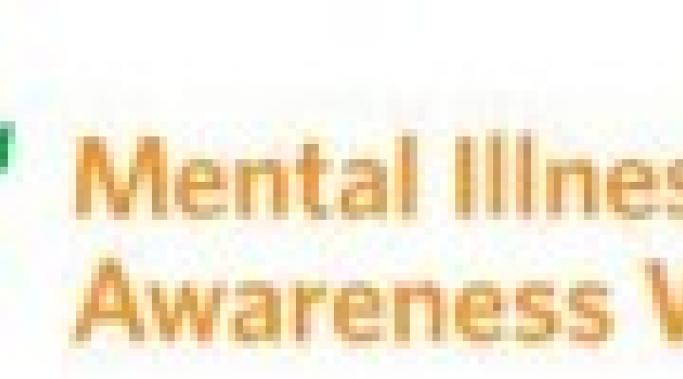I come home from the drugstore with a bagful of meds - for me this time. With threatening bronchitis and a theatre show to do in two days, I must take care of this cough and cold, and nature is just not cutting it alone this time.
Ben watches me unpack my goodies - four prescriptions in all - and line them up on the counter. This is a familiar sight, one we create every morning and evening when Ben stays with us. The rule? We supervise him as he takes them, and for 15 minutes afterward. No judgment, no explanations, no trying to "convince" him that he needs the meds.(More info on psychiatric medications here) It is, simply, the rule. So far, so good. One lesson I've learned while parenting Ben from toddlerhood on, is that explanations often lead to loopholes he tries to widen and leap through.
We are getting along so well these days. Much of it has to do with Ben's self-esteem having returned to his "baseline functionality" after this summer's relapse. So, I feel comfortable enough to start the following exchange:
Family Experience with Mental Illness
If there's anything I know about parenting, it is this: Parenting is the single most humbling experience you can have. You make plans for this child you have helped to "create", and life simply has other things in mind for him or her.
Oh, yes, you are a big part of the child's journey - but in full control? To paraphrase comedienne/author Julia Sweeney's excellent book: God Says, Ha!!
The best-laid plans are only that: plans. Want your kid to be President? (yikes, who would want that?!?!) He or she had better want that too - and have the gifts to go along with the desire.
A few years after Ben was diagnosed with schizophrenia, a friend sent me to a "psychic astrologist" I'll call Zena.Don't laugh. I was freshly unemployed after years of radio broadcasting, still getting used to the changes that my son's schizophrenia had brought to our family, and in the process of looking for an agent and publisher for my book about it, Ben Behind His Voices.
And, also, why not? I had gotten advice from worse places, believe me.
November was National Family Caregivers Month. An estimated 65 million Americans care for a family member. Of course, that is not just for families dealing with mental illness; that statistic accounts for those caring for loved ones with other physical and mental conditions, but also does not account for the number of families who are dealing emotionally with mental illness in a member even if direct care-giving is not a part of the picture right now.
I had the honor of being interviewed on several media outlets last week, and National Family Caregivers month drew to a close. The "month" may be over, but the job goes on. Here is one interview here, from "Reality Check" on Daytime TriCities.
Especially in the beginning, when a family is dealing with a loved one's mental illness, it's easy to become embroiled in the emotion of it all. In this television interview, I discuss the 5 points to remember about mental illness in the family.
Silver Linings aren't always visible right away, and sometimes we never find them. In our family, the silver lining of new friendship emerged this week from an awful event a few weeks ago. On his way to an "anonymous" meeting he has attended for almost eight years without incident, my son Ben became the victim of a crime. He was thrown to the ground, threatened with what the mugger said was a knife (we'll never know, nor do I want to), and robbed. The kids (two of them, he says) took his keys, his backpack with all his belongings, his cash, and his feeling of safety. Ben will never go to that meeting again, because the neighborhood now holds these terrifying memories .
The silver lining? Well, in finding a new meeting to attend, Ben has finally met some young people his own age who also have had issues with mental health.
My daughter Ali and her new husband Marc were part of the audience at the September book-launch event for Ben Behind His Voices - sitting right next to Ben, I might add. He was a surprise guest that night and nothing could have surprised me more. I had been concerned about Ben's reactions to the night, especially the excerpts I read out loud. Therefore, we had talked about his feelings the night before and had reached a game plan together regarding his possible emotional reactions. All went well, thank goodness.
But, see? Here, once again, I have turned the conversation to Ben's needs.
This post is about Ali, his little sister - and for all the siblings whose grief and adjustments too often get the short shrift.
First of all, big congrats to my fellow Healthy Place bloggers Natasha
[caption id="attachment_396" align="alignleft" width="170" caption="thanks!"][/caption]
Tracy (Breaking Bipolar Blog) and Kendra Sebelius (Debunking Addiction blog) - we all received Web Health Awards for Summer/Fall 2011, and I'm proud to be here on HealthyPlace with them!
Meanwhile, in nearby NYC, the buzz is about this weekend's Marathon. On the way home from dropping Ben off at school this morning, I heard a news story about one runner whose motivation is this: his brother was murdered in a Queens home invasion in September and his mother is battling cervical cancer. Runner Sal Polizzi told WCBS reporter Marla Diamond, “You really can never pick up the pieces, but you do it as best as you can.”
This is true, too, for families dealing with mental illness.
Today is my birthday, always a day of reflection and gratitude for me. This year, October 11th comes very soon after Mental Illness Awareness Week, The Jewish High Holy Days, and the publication of my book, Ben Behind His Voices. So much to think about, to share with you.
First of all, there is Ben, my son, who gave me my first birthday gift this morning (a mixture of teas he carefully selected himself, taking the time to consider my preferences). This year it is also a gift of self-esteem for him, for it marks the first time in almost a decade that he was able to pay for it himself.
Last night, Ben came home from an "Anonymous" meeting and shared with me that there had been an unexpected discussion about mental illness, and that (in his words) "about 90% of the people in the room admitted that they have one." I wanted to press for more details - you bet I did - but I've learned not to push the learning. The fact that he chose to tell me this much - without, of course, revealing names or details - seems like a good thing. Did he participate? Did he admit he has an illness, too? Did he feel supported in this group of peers? I didn't dare ask. But I did wonder.
Today is the start of the "Jewish New Year", Rosh HaShana. No matter what your community, there always seems to be a period of time set aside to reflect on what has happened in the past year, how you are going to process it, and how you hope/plan to act on what you learned in the future.
Next week the journey continues, during Mental Illness Awareness Week. Maybe those of us living with mental illness in our families can inspire awareness and thought in others, as we consider our own situations. Reflection can lead to realization, and to change. This is not merely a matter of what has happened to you and to those you love; it is more a reflection on how you eventually choose to deal with it.








